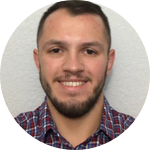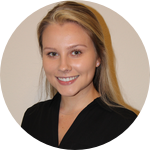About This Project
After Hurricane Maria devastated Puerto Rico, indoor air pollution (IAP) became a public health concern. We hypothesize that chronic exposure to IAP affected the immune system of the Puerto Rican population, such as becoming more reactive to pro-inflammatory components present in IAP. To test this, we will compare the human blood leukocytes reactivity of Puerto Ricans exposed to the post-Hurricane Maria IAP and Puerto Ricans not exposed to IAP.
Ask the Scientists
Join The DiscussionWhat is the context of this research?
Following Hurricane Maria, Puerto Rico experienced a large amount of destruction and water damage to homes and other indoor settings. Slow recovery of damaged homes and other indoor settings can create ideal environments for indoor exposure to microbial (e.g. bacteria and fungi, and allergens) and other contaminants with pro-inflammatory potential that can affect the respiratory health of those still living on the island.
In addition, before and after Hurricane Maria large portions of Puerto Rico’s inhabitants moved to other areas of the USA to escape the damage. This transient population in and out of the island have had different exposure to microbial contaminants on Puerto Rico, thus potentially having different responses to pollutants.
What is the significance of this project?
Interleukin-1beta (IL-1beta), released by cells of the human immune system in response to pro-inflammatory stimuli, has numerous effects on the human body ranging contributing to chronic respiratory diseases, autoimmune , hematologic, and neurologic conditions, among others. Studying the levels of IL-1beta in those that have been exposed to harsh living conditions, like post Hurricane Maria, can provide insight into the role the environment plays on one’s health after a hurricane. It can lead to further research into possible predispositions, exploring preventive measures, and immune thresholds that have the ability to cause disease by exploring length of exposure to the environment in post-hurricane settings.
What are the goals of the project?
We hypothesize that immune system of the Puerto Rican population exposed to post-Hurricane Maria indoor air pollution (IAP) is more reactive than those not-exposed (Puerto Ricans not living in the affected areas). To test this hypothesis, We will be challenging human blood leukocytes of Puerto Ricans to 50 indoor air samples to determine if the immune system of Puerto Ricans exposed (10 subjects) to post-Hurricane Maria IAP is more reactive than those not exposed (10 subjects). We will be measuring, via ELISA assay, the levels of the pro-inflammatory biomarker interleunkin-1beta induced in human blood immune cells from volunteer Puerto Rican subjects after challenge to the indoor air samples. The indoor samples were collected for an ongoing study related to Hurricane Maria.
Budget
The protein interleukin (IL)-1beta is an important pro-inflammatory biomarker that is released by human blood immune cells in response to toxic stimuli, such as those present in indoor air pollution. When indoor air samples are tested for the potency to induce the release of IL-1beta from human blood immune cells, we can understand the respiratory risk that a particular environment poses to human health.
Volunteer subjects will receive a $15 compensation (each) to show our appreciation for their participation. We are anticipating 20 volunteers (10 exposed and 10 not-exposed to post-Hurricane Maria indoor air pollution) in the project.
Once in the lab, participants' blood will be challenged with indoor air samples collected from water-damaged and non-damaged (control) homes. Levels of IL-1beta will then be quantified with the ELISA technique.
Our research group staffs researchers and phlebotomists that are able to collect blood, run experiments, interpret, and publish findings.
Endorsed by
 Project Timeline
Project Timeline
After IRB approval, we will begin recruitment of volunteers. We will recruit 20 volunteers: 10 who lived in PR before and 10 who lived in PR during the hurricane, and now (both groups) are living in the US (South Florida region). We will draw blood and challenge the human blood immune cells and measure the IL-1beta biomarker with ELISA. Lastly, we will analyze and publish the findings. The indoor air samples are already available as part of another study.
Feb 07, 2019
Project Launched
Apr 01, 2019
IRB Review
May 01, 2019
Recruit Participants (after IRB approval)
Jun 01, 2019
Challenge human blood immune cells and quantify biomarkers (IL-beta) with ELISA
Jul 01, 2019
Data Analysis
Meet the Team
Affiliates
Team Bio
We are the Respiratory and Immunology Project Laboratory Research Team (RIPLRT) within the College of Biomedical Sciences at Larkin University.
In the RIPLRT, in addition to addressing the respiratory health of the population through immunological, exposure science, and computational approaches, we value inclusiveness, diversity, integrity, productivity, innovation, excellence, collaboration, and leadership.
Felix E. Rivera-Mariani, PhD FAAAAI
I am an Associate Professor at Lynn University with a passion for interfacing biochemistry, immunology, microbiology, environmental health, and computational biology, focusing on biomarker discovery. My research centers on discovering biomarkers to characterize different physiological disease states to deploy intervention strategies. After completing my Ph.D. in Microbiology and Medical Zoology at the University of Puerto Rico School of Medicine and a postdoctoral fellowship in Environmental Health Sciences at Johns Hopkins University, I served as an Assistant Scientist at the University of Miami Miller School of Medicine and as an Assistant Professor at Larkin University.
I am the founder, principal investigator, and director of the RIPLRT Institute, which mentors aspiring scientists—particularly those from underrepresented backgrounds—while pioneering interdisciplinary research in environmental and respiratory health. I am also the founder of Vistazo A La Ciencia, a science communication platform that brings biomedical research to broader audiences. My scholarly achievements include peer-reviewed publications, extramurally-funded projects ( with grants from NIH, CDC, Puerto Rico Public Health Trust, etc.), and presentations at major scientific regional, national, and international conferences. I am also a computational biologist and data scientist trained in data science, genomics, bioinformatics, and AI (including from Johns Hopkins, UC San Diego, Mt. Sinai, and Vanderbilt University); I use R, Python, and MATLAB to build reproducible analytical pipelines. At Lynn University, I teach biochemistry, microbiology, and advanced topics in biology while mentoring students to cultivate a new generation of innovators committed to advancing health equity through science, education, and mentorship.
Here is my website: https://www.friveram.com
Hayat Srour
I am a graduate from the M.S. in Biomedical Sciences program at Larkin University. Before joining Larkin, I earned a B.A. in Anthropology from Wayne State University (Detroit, Michigan). My interest in scientific research stems from my passion for medicine and philanthropy. Among my diverse goals, I aspire to become a physician actively working toward global equality.
My participation and leadership in the RIPLRT date back to its beginning (back then the RIPLRG). When the group was created, I was assigned the task of being the spokesperson of the group. Now, I am a Research Assistant and Lab Manager of the RIPLRT.
Ruslan Fomenko
I am a recent graduate of the M.S. in Biomedical Sciences from Larkin University, and grew up in Kazakhstan and moved to Virginia Beach, Virginia. I also have a B.S. in Cellular and Molecular Biology, with a Psychology minor, from Christopher Newport University. As an undergraduate, I participated in research focused on the antioxidant and antimicrobial properties of drought and salt-stressed Rosmarinus officinalis plants. With the RIPLRT, I am a Research Assistant and one of the certified phlebotomist.
Shandra Bellinger
I am originally from Maryland, where I completed a B.S in Biology from Frostburg State University. I relocated to Miami and graduated from Larkin University with a M.S. in Biomedical Sciences. Being a member of the RIPLRT is allowing me the opportunity to grow as an Research Assistant and expand my knowledge.
Joshua Baguley
I grew up in Indonesia and then moved to Waco, Texas where I attended Baylor University to complete a B.S. in Biochemistry. I spent the majority of my time at Baylor working as an undergraduate researcher, specializing in DNA manipulation and protein purification, and focused on the functions and effects of replication factors MCM8, MCM9, Dpo1, and Dpo4 on the DNA replisome. I am also a recent graduate of the M.S. in Biomedical Sciences program at Larkin University.
Ariel Stateman
I recently graduated from the M.S. in Biomedical Sciences program at Larkin University. Before joining Larkin, l earned a B.S. in Molecular and Cellular Biology from the University of Illinois at Urbana-Champaign. There, I participated in scientific research studying the sensing in lean and obese individuals through rats. I also have extensive experience in clinical observations from my internships at Carle Foundation Hospital in Urbana, IL. Among my prospective professional plans, I look forward to earning a MD degree.
Project Backers
- 1Backers
- 3%Funded
- $50Total Donations
- $50.00Average Donation








